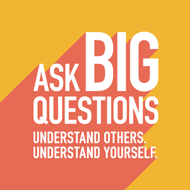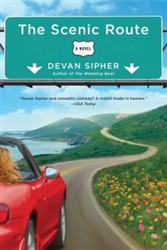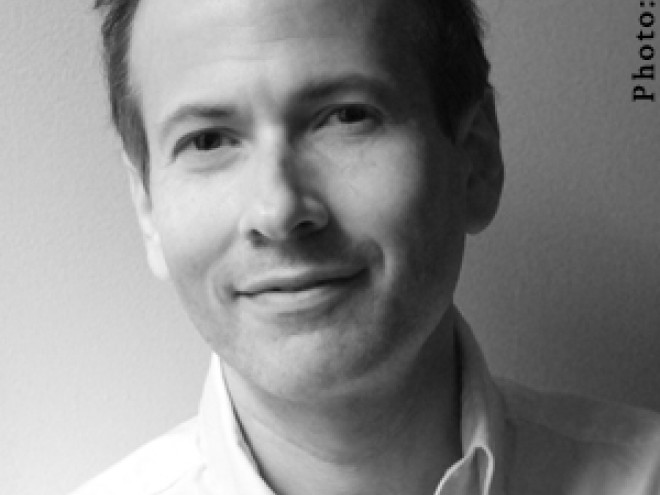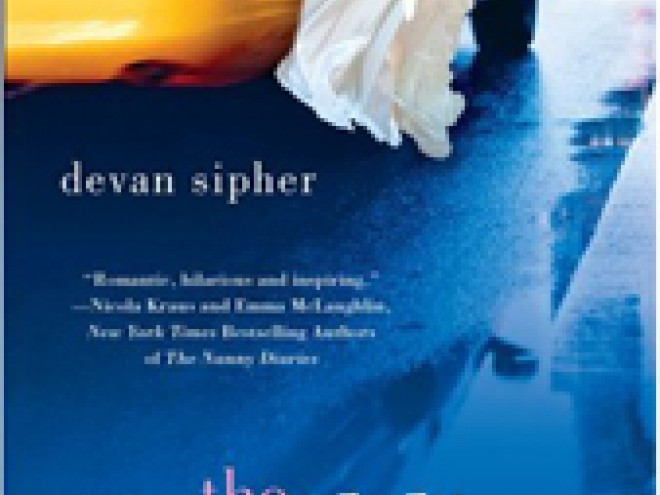 The Jewish Book Council is delighted to publish a continuing blog series in partnership with Ask Big Questions, an initiative out of Hillel International aimed at getting people to talk about issues of heart, soul and community. Each month, Ask Big Questions will feature a JBC author on their blog, shared here on the JBC ProsenPeople blog page, and in campus programming reaching over 10,000 college and graduate students.
The Jewish Book Council is delighted to publish a continuing blog series in partnership with Ask Big Questions, an initiative out of Hillel International aimed at getting people to talk about issues of heart, soul and community. Each month, Ask Big Questions will feature a JBC author on their blog, shared here on the JBC ProsenPeople blog page, and in campus programming reaching over 10,000 college and graduate students.
Devan Sipher is a writer for The New York Times and is currently touring through the 2014 – 2015 JBC Network with his second novel, The Scenic Route.
How do we love, when we know that the person we love will eventually leave us, voluntarily or involuntarily?
 For the last ten years, I have written about weddings for The New York Times. (In the movie 27 Dresses, the actor James Marsden was said to be portraying me, but with better hair.) So I have heard more than my fair share of couples vowing unmitigated passion and devotion. (Bridal couples aren’t known for understatement.) But every promise made on a wedding day has an explicit expiration date, i.e., “as long as we both shall live.”
For the last ten years, I have written about weddings for The New York Times. (In the movie 27 Dresses, the actor James Marsden was said to be portraying me, but with better hair.) So I have heard more than my fair share of couples vowing unmitigated passion and devotion. (Bridal couples aren’t known for understatement.) But every promise made on a wedding day has an explicit expiration date, i.e., “as long as we both shall live.”
Even at the moment when we are most focused on uniting with another person, we are also focused on the finite nature of that union. Without even addressing the many ways a relationship can deteriorate over time, the best case scenario for love is mourning the loss of the person we hold most dear (or being the one to leave that person bereft).
We hope that moment is many decades away, but it could just as easily be much less. Planes drop out of cerulean skies. Cancer cells invade supple tissue.
As Jews, we don’t believe in a hereafter where we have the opportunity to be reunited with loved ones. It would be easier if we did, but “dust thou art and to dust thou shalt return” is not a philosophy that lends itself to romantic notions of an afterlife.
So love, like religion itself, becomes an act of faith.
We leap into love hoping that the joy we will gain offsets the pain we are likely to eventually endure. We gamble our youth and our vital energy on something that is invisible and inscrutable, all the while knowing that the more we cherish someone’s companionship, the more profound will be our loneliness in its absence.
So it’s no surprise that many hesitate at the altar of commitment. Books and blogs and women’s magazines overflow with tales of those unable to trust completely and love wholeheartedly. For many people, there is a fear of giving oneself completely and being depleted in the process. And to what end?
I have written about people who have lost spouses prematurely to horrible diseases. I have written about people who have watched loved ones wither physically and mentally over grueling months and years. It’s exhausting to merely contemplate the strength and stamina required.
 But perhaps, like the physical body, the spirit only grows when it encounters resistance.
But perhaps, like the physical body, the spirit only grows when it encounters resistance.
If we don’t run or swim or lift weights or spin, our bodies have a tendency to get lumpy and misshapen. And it is very possible the same is true for our souls. It is possible that the moaning and the crying, the hoping and the praying, and even the late-night binges on pints of ice cream all play a part in strengthening our souls. Of course, there’s no guarantee that we have souls. There’s no guarantee of anything about life, except for death.
And there’s the rub. Love potentially magnifies the existential pain of our mortality. Yet love is a force strong enough to allow us to believe we are more than just dust. When we love do we transcend the physical limitations of our muscles and molecules? Or do we fall victim to a cosmic Ponzi scheme? Is love a sign of a divine spark within us? Or is even asking that question presupposing things we can’t possibly know?
In the end, we don’t know. We hope. We fear. But we don’t know. Or at least, not until it’s too late. It would be the ultimate irony to be provided with the answers to life’s questions on the threshold of death. And it would potentially be the ultimate loss. So maybe the question isn’t “How do we love?” but “How do we not?”
Devan Sipher is a writer of the Vows wedding column in The New York Times and the author of two novels. He has also written for other publications, including The Forward and The Huffington Post. He graduated from the University of Michigan, received an M.F.A. from New York University, and he is a former junior cantor of Temple Israel. For more, please visit www.devansipher.com.
Related content:
- Devan Sipher: 6 Things I Learned Writing About Weddings for The New York Times
- Essays on Death, Mourning, and Loss
- Essays on Dating, Love, and Marriage



